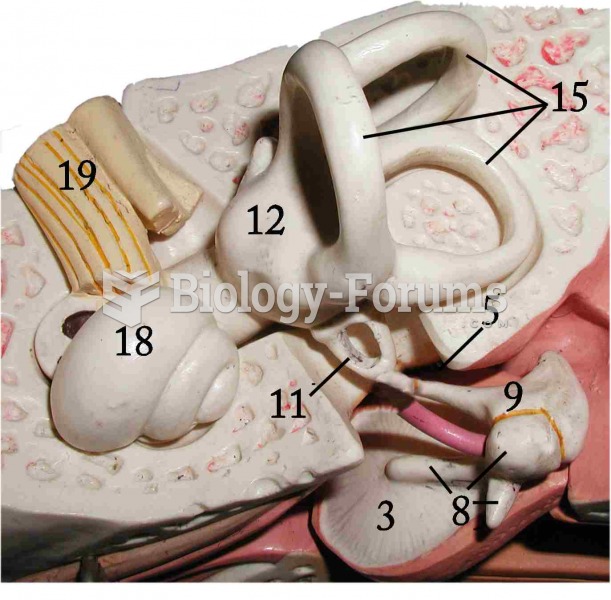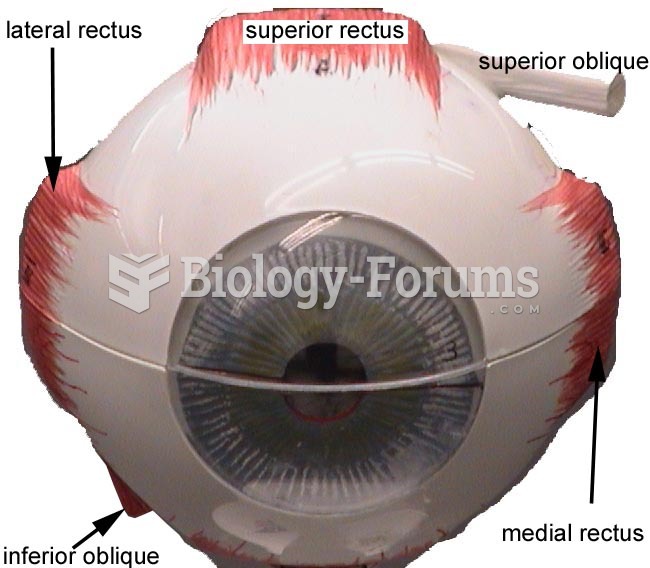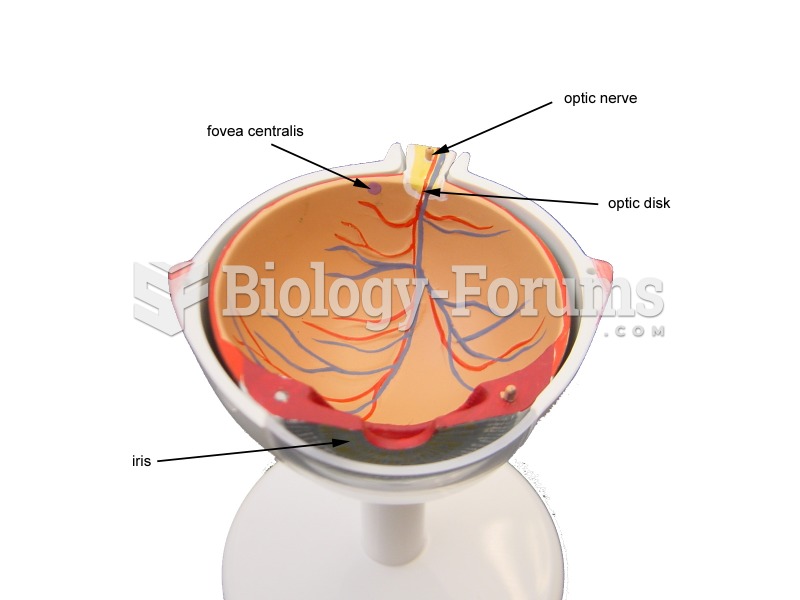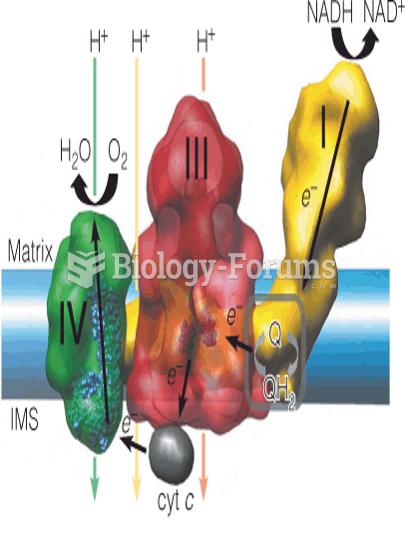|
|
|
People with high total cholesterol have about two times the risk for heart disease as people with ideal levels.
Though “Krazy Glue” or “Super Glue” has the ability to seal small wounds, it is not recommended for this purpose since it contains many substances that should not enter the body through the skin, and may be harmful.
After 5 years of being diagnosed with rheumatoid arthritis, one every three patients will no longer be able to work.
The ratio of hydrogen atoms to oxygen in water (H2O) is 2:1.
The Centers for Disease Control and Prevention (CDC) was originally known as the Communicable Disease Center, which was formed to fight malaria. It was originally headquartered in Atlanta, Georgia, since the Southern states faced the worst threat from malaria.







